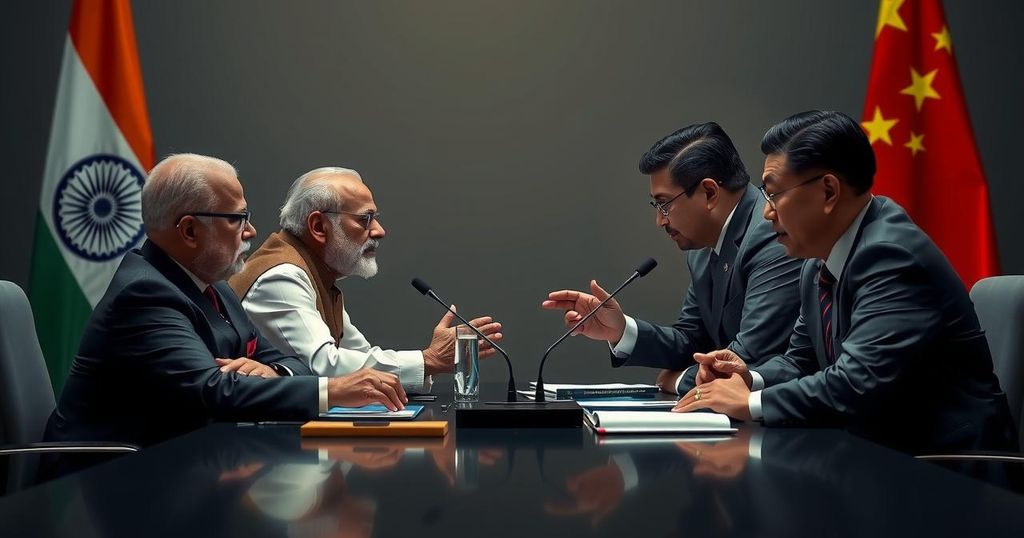Indian External Affairs Minister S. Jaishankar and Chinese Foreign Minister Wang Yi met at the G20 summit, where they reviewed military disengagement efforts at Demchok and Depsang. This meeting marked the first high-level engagement following the disengagement, during which they discussed future steps in bilateral relations and the global situation. Indian and Chinese militaries have resumed patrols in these areas after a significant period of tension.
During a recent meeting on the margins of the G20 summit, Indian External Affairs Minister S. Jaishankar and Chinese Foreign Minister Wang Yi reviewed the progress made in the disengagement of troops at the Demchok and Depsang locations in eastern Ladakh. This marked the first significant diplomatic interaction following the completion of the disengagement process at these critical friction points along the Line of Actual Control (LAC). In his statement posted on social media, Minister Jaishankar emphasized the positive developments resulting from the disengagement, as well as discussions concerning the future of bilateral relations between India and China. Furthermore, both ministers deliberated on the current global situation, highlighting the broader geopolitical dynamics influencing their dialogue. Notably, Indian and Chinese military forces had resumed patrolling activities in these regions after a lengthy hiatus of approximately four and a half years, indicating a potential thaw in military tensions. The G20 summit, hosted by Brazil, provided an apt platform for such crucial discussions.
The India-China border dispute has been a longstanding issue, particularly in the context of strategic military positions along the Line of Actual Control in the mountainous regions of Ladakh. The disengagement process recently completed at Demchok and Depsang signifies a pivotal development in the management of bilateral tensions. The resumption of patrols indicates a potential shift towards more stable interactions between the two nations, which could have far-reaching implications for regional security and cooperation. The G20 summit serves as an international venue for major world leaders to engage on various pressing issues, including diplomacy and economic collaboration.
In summary, the meeting between External Affairs Minister S. Jaishankar and Chinese Foreign Minister Wang Yi represents a constructive step in the ongoing process of managing India-China relations, particularly in the wake of military disengagement in contested border areas. The discussions not only reaffirm the commitment to dialogue but also signal a potential path forward in enhancing bilateral ties amid global and regional complexities.
Original Source: www.ndtv.com






